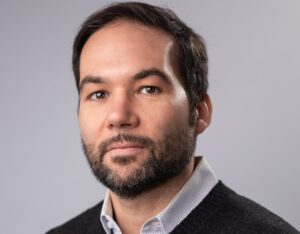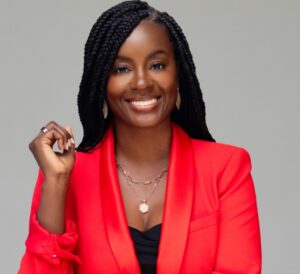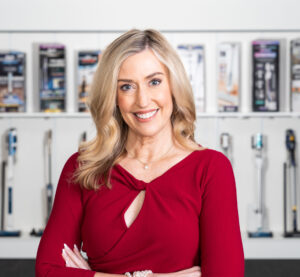Zecomms Founder Evgeniya Zaslavskaya builds global brand stories that resonate
Why authenticity over hype is the key to global PR success.

Evgeniya Zaslavskaya is the founder and CEO of Zecomms, a PR agency specializing in IT and investment sectors across global markets. With a background as a journalist, in-house PR specialist and independent consultant, Zaslavskaya launched Zecomms in 2022 to help tech companies craft messages that resonate across cultures. She emphasizes that “cultural nuances play a crucial role in PR, especially when building relationships with journalists in new regions.” From cybersecurity to fintech, her team navigates these differences, whether that means tailoring pitches to local media or understanding the importance of face-to-face meetings.
What was your first experience in communications, and how did it shape your career path?
I have always been fascinated by media and communications, so after graduating from school, I enrolled in a journalism program. I also did not like math – that affected my choice of education. I find it a bit ironic now, given that as an entrepreneur you have to work a lot with numbers. But anyway, I loved the profession of journalism and spent six years working across various media outlets. At some point, however, I found myself craving new career challenges. That led me to pivot into PR. Initially, I came to a job interview for a business assistant position at a large company, but they offered me a media relations manager position realizing that would be a better fit for everyone —after all, as an experienced reporter, I already knew how to navigate the media landscape. Those skills and experience are still helping me a lot in my work.
What motivated you to start ZECOMMS, and how has your vision for the company evolved?
Working in-house as a PR professional can often feel routine. In contrast, handling multiple clients keeps things dynamic—you’re never bored and can always shift focus to a different project for a fresh perspective. That’s why, since 2016, I have been working independently as a PR consultant. I built a team of managers and writers who helped me grow my client base and ensure projects were delivered on time. Yet, despite this success, I hesitated to take the next step and establish an agency. It’s hard to say why—perhaps I was simply reluctant to publicly embrace the role of an entrepreneur. Everything changed in 2022 when I met my business partner. She gave me the confidence to believe in myself and became a strong support system during the inevitable challenges of running a business.
Interestingly, in the beginning, I had no ambition to build a large agency—I wanted to keep things small and boutique-style. But over the past couple of years, our client base has grown significantly. Many clients choose us over larger firms, our ambitions have expanded, and our experience has deepened. Now, my goals are shifting, and I would like to compete with bigger players in the future.
What’s one challenge or concern you have about where the industry is headed?
I’m an optimist, so I appreciate how the industry is evolving. It’s true that building relationships with journalists alone is no longer enough to do great PR. You also need to work with podcasts, and know what kind of content works best for LinkedIn. Additionally, developing blogs on Medium and Substack, organizing events for clients, or securing guest spots at major industry events have all become essential parts of the job. In addition, knowing LLMs is essential too. Many of our clients are now prioritizing models like Perplexity over CEO optimization for Google Search. But I love all these changes—they push me to keep learning and growing as a professional. You have to work with LLMs too. Some of our clients are now focused more on work with models like Perplexity than CEO-optimisation for Google search.
What concerns me are the changes happening in media outlets. In January, The Washington Post laid off 4% of its workforce, while HuffPost made even more drastic moves, cutting over 20% of its newsroom. I believe these shifts are partly driven by the rise of generative AI. AI has undoubtedly become an invaluable tool for content creation. However, it cannot replace humans, as it lacks original thought, and people still crave real opinions in the media. That said, these layoffs might create opportunities for the PR industry—we now have more talented professionals to hire.
You’ve helped tech brands make a global impact—what’s one key ingredient to crafting messages that resonate across different cultures?
The key ingredient is incredibly simple. Whether it’s a media publication or a booth at an event, there should always be a real person behind the communication—someone who can talk about themselves and their product in plain, relatable language. It’s also essential to follow the basic principles of natural human interaction and avoid excessive self-promotion. After all, imagine sitting with a friend who talks nonstop about how great they are—it wouldn’t be the most enjoyable conversation, would it? Instead, the focus should be on a compelling, engaging story through which an entrepreneur shares their achievements, and ways their products might improve the lives of their potential customers.
What’s a book, movie, or TV show that has had a big impact on how you think about storytelling?
Two TV shows that have deeply influenced how I think about storytelling are WeCrashed and The Morning Show. WeCrashed tells the rise-and-fall story of WeWork with masterful pacing, character development, and tension, showing how compelling storytelling can turn a business narrative into a gripping drama.
Meanwhile, The Morning Show provides a behind-the-scenes look at how media narratives are shaped—how stories make it to air, who decides what’s newsworthy, and how the dynamics of power and influence play out in journalism. It’s a brilliant reminder of how storytelling isn’t just about what’s being said, but also who gets to say it and why. On the nonfiction side, the just recently released book Venture Mindset has been a fascinating read. It offers valuable insights into how investors decide where to put their money—emphasizing that a strong team matters more than just a great idea. The book also touches on PR, making it especially relevant to my field.
If you could instantly master any new skill (personal or professional), what would it be and why?
We are building an international agency, and many of our clients are expanding into diverse markets—from MENA to LATAM—seeking our PR support to achieve their goals. Each market, however, comes with its nuances. Take Argentina, for example—English alone isn’t enough; Spanish is essential. This means hiring local managers, but then comes the challenge: how do you oversee their work and maintain quality control? These complexities can become real obstacles, which is why I’ve often wished I spoke multiple languages.
Isis Simpson-Mersha is a conference producer/ reporter for Ragan. Follow her on LinkedIn.







